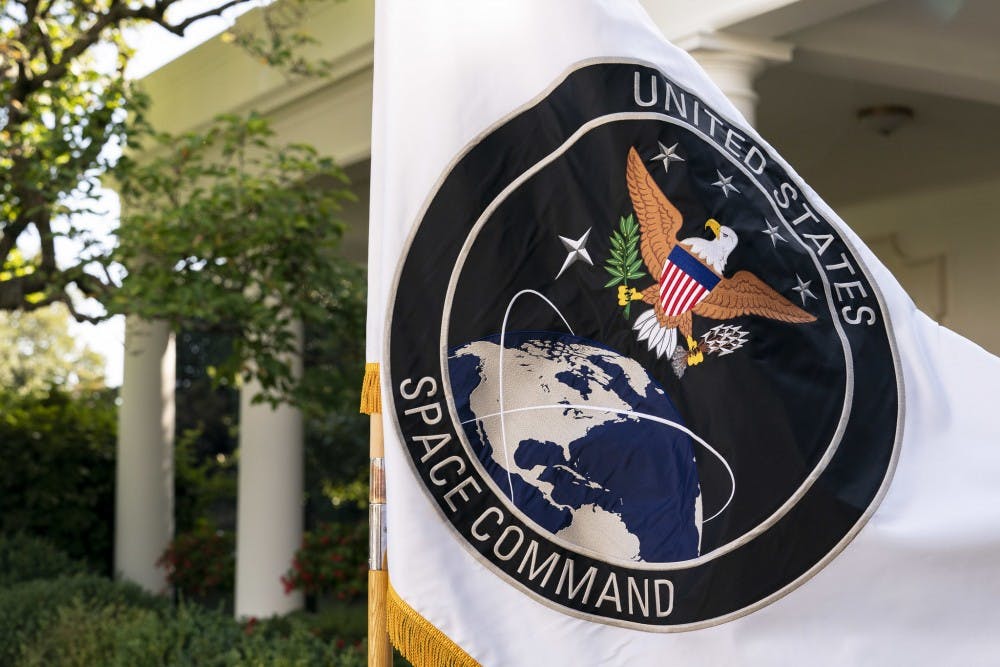This year there has been renewed public interest in the topic of space exploration and development. On Aug. 29, U.S. President Donald Trump announced the launch of the U.S. Space Command.
The Space Command is now one of 11 combatant commands, which are groups within the Department of Defense with special authority over a certain geographic region or that serve a specific function. The new Space Command will focus on security issues of national and global scale involving outer space.
Sophomore Political Science and Philosophy major Mario Aguirre said that Trump may have had ulterior motives for creating Space Command.
“I think the reason Donald Trump did this was to cement a legacy… his real policies, like his version of the Affordable Care Act (ACA) failed, so this is ego-boosting or trying to cement a legacy as a President,” Aguirre said in an interview with The News-Letter.
While the Space Command has now been officially established, not many logistical details are public. The organization is tasked with conflict aversion, protection of space-related activities by the U.S. and allies and supporting the combat missions of the proposed Space Force. The Command’s temporary headquarters are located at Peterson Air Force Base in Colorado Springs, Colorado. General John Raymond serves as commander. The Command will be made up of military personnel, civilian employees and private contractors.
Marcos Perez, a senior majoring in Mechanical Engineering with a focus in Aerospace Engineering, expressed his concern over the implications a Space Command has for future wars.
“The creation of these [organizations] can be helpful in protecting our country’s assets in space, as well as in providing safety,” Perez said. “However, I am a bit scared of what warfare could be like with such powerful technology orbiting the Earth.”
The Space Command is separate from the Space Force that Trump proposed earlier this year, but the president made it clear at the ceremonial establishment of the command that a space-based military branch is his next goal.
“[Space Command] will soon be followed, very importantly, by the establishment of the United States Space Force as the sixth branch of the United States Armed Forces,” Trump said at a ceremony establishing the Space Command.
The creation of a Space Force is not yet guaranteed, however, since the addition of a branch to the military requires congressional approval. Trump has expressed his belief that a Space Force is necessary by referring to space as “the next war-fighting domain.” The Pentagon, in addition to military and security experts, worry that American satellites could be a target for terrorist organizations or other groups hoping to harm the U.S. because of their importance to military operations and economic activity.
Both Aguirre and Perez believe the resources that will be allocated towards the Space Command and potential Space Force could be better used in other ways.
“Before we can focus on outer space travel and colonization, I think there are domestic issues and social tensions, like economic inequality and climate change, that we should address before looking to the stars,” Aguirre said.
The concept of a space combat unit is not new. Some countries currently have similar organizations. Russia, for example, has had a Space Force as part of its military since 2015, and the People’s Liberation Army Strategic Support Force was established the same year in China to deal with issues relating to cyber, space and electronic warfare.
Perez, who is working on a project to aid a New Horizons mission to Saturn in 2030 to study the planet’s atmosphere, also explained how these new organizations could detract from opportunities for future space exploration and research.
“I’m very passionate about some space science questions such as: Can we colonize Mars? Is there life in Europa, the moon of Jupiter? Or is there life in Enceladus?” Perez said. “But I’m concerned that using funds to aid in the creation of the Space Force/Command could limit our attempts to answer those science questions and to continue exploring space.”
With the Space Command in its infancy and no timeline for the creation of a Space Force, it will likely be a few years before anything remotely like Star Wars happens.





